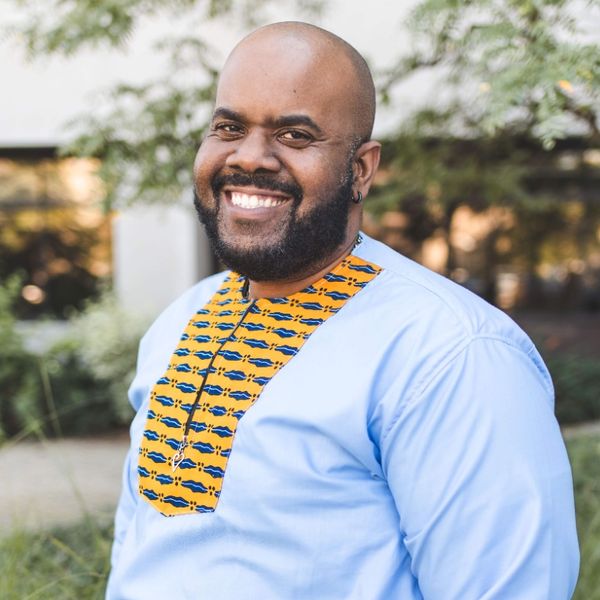
Experienced linguist, academic writing instructor, and researcher with over 12 years of experience in the academic setting teaching a wide variety of courses in the humanities. Dept. profile.
Title: “Modeling Time Reference in Judge’s Summation: A Study in Time Reference Management in a Creole Continuum Courtroom”
Supervisor: Hubert Devonish, Professor of Linguistics, University of the West Indies, Mona
Converted to PhD program
This course examines the linguistic and rhetorical tools involved in the language of advertising. Participants are introduced to a brief history of the discourse of advertising and how the rhetoric in that communicative genre has evolved across space and time (focusing primarily on the mid 20th century to the present). Additionally, the course utilizes various analytical methods grounded in rhetorical theory and applied linguistics in exploring the principles of advertising language. Finally, participants are engaged in the dissection and creation of original advertising copy.
This course introduces students to the foundational areas in the field of linguistics. Linguists study the quintessential human trait - language - and situate this study within areas of study as diverse as human cognition and development, language learning and teaching, and critical theory. This course is designed to give participants a brief overview of the structural components of language (such as the sounds, syntax, and how meaning is assigned to units of language) as well as how language shapes and impacts on our world in dynamic and interesting ways.
This course is intended to introduce participants to the principles and procedures of technical editing. We will draw on examples from manufacturing, the sciences, and the legal field in an effort to build competence and proficiency in the different levels of editing. Material for editing will be drawn both from real-world cases as well as originally created by class participants with the goal of engaging in professional editing techniques. Participants will finally be introduced to the basics of working with editing software.
This course introduces students to the ways in which language shapes and sustains various forms of cultural expression in the Caribbean region. Participants will use the creative output of storytellers, poets, DJs, and playwrights as a lens to investigate and trace the evolution of a distinctly Caribbean identity from the post-colonial period (the 1960s) up to the present. Participants are also introduced to the socio-political dynamics of Creole language use in the Caribbean and an exploration of the ways in which these languages are implicated in diverse cultural art forms.
Educators at the high school level are describing the current declining math scores in Ontario as a “crisis.” Some attribute this to a general fear and discomfort with the subject, but also to intimidating and unengaging methods of communicating topics in mathematics. This course hopes to address the latter problem - how experts and practitioners of math communicate core principles in the subject area without alienating the layperson. We will draw on a variety of communication techniques, ranging from report writing to group presentations and podcasting in an effort to develop a skill set needed to strengthen math enthusiasts as competent and effective communicators.
ENGL 109 serves as an introductory course to the foundations and principles of the genre of writing expected at the university level. Participants will be exposed to three styles of academic essays - the expository, narrative and argumentative essay - and instructed how each style fits into the larger goals of the institution as well as to the world outside the classroom. Since good writing is a social and indeed collaborative activity, participants will receive ongoing feedback on their own writing, as well as learn how to give constructive criticisms to the writing of their peers.
This course introduces participants to the basic elements of the grammar and use of Jamaican Creole (“Patwa/Patois”). It is designed specifically for persons with no prior knowledge of the language and/or persons who have knowledge of the language but would like to learn the grammar and writing system formally. In addition to the grammar of Jamaican, different aspects of Jamaican culture will be explored, such as literature, film and theatre, and music.
A teaching portfolio to showcase adjustments to courses during the transition to remote teaching in the pandemic. It displays a collection of syllabi, class exercises, and excerpts from classroom discussions.
Core planning committee for the Black History Month event in the Faculty of Arts
Planned and executed equity initiatives for faculty at the university.
Managing and directing action items for the BFC
A research series for faculty members to share their research and provide feedback for others
A forum for faculty members to share and implement ideas in their courses centred on anti-racist initiatives.
Reviewed candidate files and created a shortlist for interviews, then assisted in interviewing candidates
Assisted in organizing the annual English Awards Ceremony in recognition of student achievement.
Analyzed court transcript in mistrial case
Designed material for teachers on the English Creole heritage language program
Analyzed wiretap evidence containing Jamaican speech
Attorney: Law Offices of George S. Yacoubian, Jr., LLC
George S. Yacoubian, Jr., Ph.D., LL.M., S.J.D., M.S.
150 N. Radnor Chester Road, Suite F200
Radnor, PA 19087
610.768.8988 - Office
Gave testimony on the interpretation of Jamaican language idioms heard on wiretap evidence.
Attorney: Paul J.I. Alexander
Barrister
55 University Avenue, Suite 1100
Toronto, ON M5J 2H7
Tel (416) 960-3000
https://toronto.citynews.ca/2021/07/02/dominica-fights-to-save-creole-forged-by-slaves-in-caribbean-2/
https://bdscvrd.com/blog/boasty-ep-5-jamaican-creole-coveted-everywhere
https://www.omnitv.ca/on/en/videos/2863992221001/